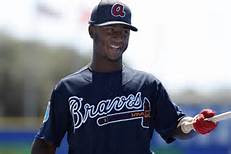We’ve talked about the most improved prospects, and we’ve talked about the prospects who are candidates for bounce-back years.
Now, we have to go a little bit negative, which we hate to do; what’s the fun of going negative when the whole point of scouting prospects is optimism?
These are the prospects who don’t inspire optimism. At least right now. Keep in mind that player development is impossible to predict, so these players could easily be listed in the most improved group next summer, or even end up contributing to big-league clubs by then. Based on what they showed this year, however, these players are unlikely to make immediate contributions, if at all.
Here’s a look at the most disappointing prospects of 2017.
Hitters
Austin Meadows, OF, Pittsburgh Pirates -- It may be unfair to put a hitter who missed time with injuries on this list, but those injuries are part of why 2017 was such a disappointing season for Meadows. It would be one thing if he just missed time with hamstring injuries, but he also didn’t hit very well, posting a .670 OPS at Triple-A Indianapolis. There’s no questioning Meadows’ talent, but there’s also no doubt that his stock took a fairly dramatic hit after his lackluster season. We’ll see if he can bounce back in 2018.
Corey Ray, OF, Milwaukee Brewers -- When Ray was taken by the Brewers with the fifth pick of the 2016 MLB Draft, many -- including yours truly -- thought he was a can’t-miss prospect who could move quickly through the Brewers’ system. Then he hit .248 and struck out 156 times at High-A Carolina. The plus hitting talent he showed at the University of Louisville has been nowhere to be found, and he hasn’t walked or hit for enough power to compensate for the lack of quality or quantity contact. Ray will turn 24 next September, and while that’s by no means “old,” it isn’t a spring chicken, at least in terms of prospects.
J.P. Crawford, SS, Philadelphia Phillies -- Here’s the good news with Crawford: He was much better in the second half, and he even earned a trip to the big leagues in large part because of that. Here’s the bad news: The first half was a disaster, and even in an improved year, there were still significant flaws that will keep him from ever reaching what was once a lofty ceiling. The approach is fine, but he makes too much weak contact, he isn’t likely to hit for big power and his once average speed is now below-average. Even his once other-worldly defense took a hit this year. Crawford is a big-leaguer, but after showing upper-echelon talent that had him listed at or near the top of prospect lists, it’s disappointing to say it’s unlikely he ever reaches that ceiling.
Pitchers
Jose De Leon, RHP, Tampa Bay Rays -- The Rays acquired De Leon for Logan Forsythe last winter, and on paper, it was a coup to acquire a pitcher with his talent. Unfortunately, for the second straight year, De Leon couldn’t stay on the mound, and didn’t show the same type of stuff when he did. He still has a change that gets 70 (on the 20-80 scouting scale) grades, but the fastball was worse, and the breaking ball still isn’t up to par. At this point, it’s unlikely De Leon ever becomes more than a backend starter or reliever.
Justin Dunn, RHP, New York Mets -- The concern with Dunn isn’t the 5.00 ERA so much -- though that’s less-than-ideal -- it’s that he didn’t miss bats. A first-round pick who showed two plus pitches at Boston College should be missing more bats than 75 strikeouts in 95 ⅓ innings, and 48 walks in that same timeframe isn’t great, either. Dunn has plenty of time to rebound, but he didn’t look like a starter in 2017.
Brady Aiken, LHP, Cleveland Indians -- Every player on this list still has a chance to rebound as a big-league player someday. This is true for Aiken as well, but he has the most work to do, which is a big surprise for a player who was once drafted with the first overall pick. Aiken had no feel for his stuff, and walked 101 hitters in in 132 innings. Not only was the control bad, but his fastball velocity was inconsistent, and his secondary pitches were below-average for most of the year. Aiken won’t turn 22 until June, which is basically his only saving grace. The chances of him ever being a competent big-league pitcher are sadly very low.

No comments:
Post a Comment